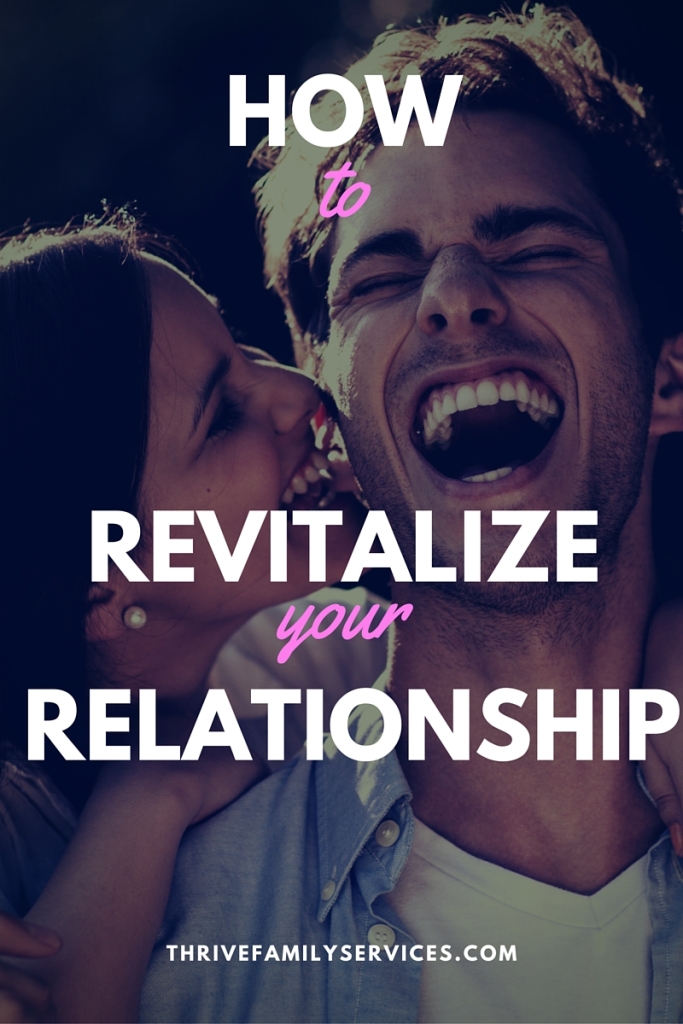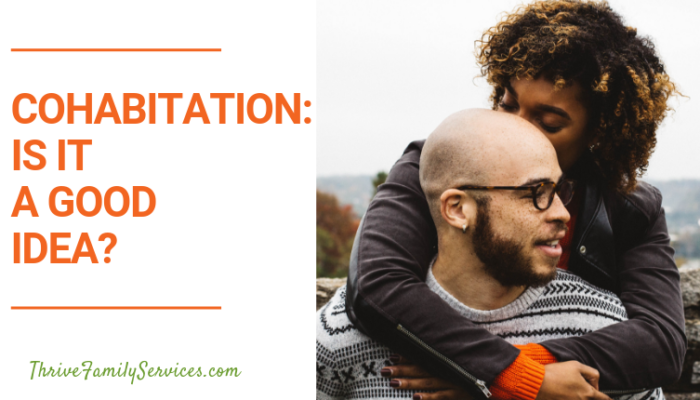How to Revitalize Your Relationship
Couples often come to therapy when they are feeling disconnected, distant or more like roommates than lovers. It’s painful to lose that connection in your relationship, especially when you remember how good it was during the “honeymoon phase.”
Back then, you probably felt happiness, ease, love, true connection, passion and laughter. The great news is that though this shift happens to most couples, we know how to help you revitalize your relationship and open the possibility of an even greater love, intimacy and happiness.
Want to revitalize your relationship? Check out our tips to regain that love and happiness with your partner.
Tips to revitalize your relationship
1. Take time to understand and practice having more vulnerable conversations.
Confessional: I used to lock my husband in the car after couples therapy! He wasn’t actually prevented from leaving, but I would make it clear to him that I wanted to keep talking. I knew that as soon as we got inside, the bubble of our time together would pop; and laundry, television, phones, etc. would get in the way of our closeness.
[tweetthis url=”http://bit.ly/revitalize4two”]It takes a decision to have a more vulnerable conversation with your love. Do you take the time to dig deeper? [/tweetthis]
Many couples enjoy couples counseling (strange, but true!) because it gives them the time and space to go deeper. If you have kids, two careers or other forms of busyness, it can become a rare thing to just spend time talking.
2. Be intentional about spending quality time together
Remember, LOVE is a verb, not a noun.
This means love is active, something you work for, not just something out of your control that is there or not there.
Spend time together-intentionally!
Plan a date night (even if it’s a stay at home night), whatever you decide, find time together. Often, life gets too busy, it’s easy to just go through the motions and become roommates/business partners/co-parents, rather than actually connecting with one another.
It may not be about quantity, but QUALITY time.
This means to limit your distractions (cell phones, computers, TV) and do something fun, that brings you together and allows you to focus on your connection.
Remember that being in a partnership is choosing to do life together. It can be incredibly fulfilling and rewarding if the love is fostered and nurtured, not lost by getting caught in the cycle of arguing, criticism, withdrawal and going through the motions of the daily routine .
“Those who love you are not fooled by mistakes you have made or dark images you hold about yourself. They remember your beauty when you feel ugly, your wholeness when you are broken; your innocence when you feel guilty; and your purpose when you are confused”- Alan Cohen
3. Go Deeper with your Emotions
Here at Thrive Counseling, we tell couples that they need to be able to communicate in three main ways to have great relationship:
- You need to be able to nurture your relationship and express appreciation and love
- You need to be able to turn to your partner with your challenges and lean on them in times of need
- You need to be able to deal with conflict between you in a way that is productive and brings you closer
In order to thrive and feel happy, strong and secure, relationships need a solid foundation of emotional intimacy.
Do you make a habit of regularly sharing your deep positive feelings, your deeper struggles, and your more vulnerable feelings when you disagree?
4. Get to Know Each Other’s Stories
You can revitalize your relationship by teaching each other your stories. Like all of us, you learned how to be in romantic relationships from two main sources:
Watching your parents with each other. What was their marriage or relationship like? What did you see?
Experiencing your parent(s) relationship with you. Did they express emotion? Did you feel you could count on them?
For example, let’s say “Jenny” grew up with an emotionally unavailable father who never said “I love you” and would distance himself from the family by watching TV all the time. Jenny is likely to be sensitive to anything in her current relationship that may remind her of this painful experience. However, when she requests that her partner limit his time watching TV and say “I love you” daily, he may perceive it as controlling, get defensive and argue with her.
If her partner could understand Jenny’s past and understand the truth behind her requests, he is more likely to have empathy for her and it would no longer be perceived as nagging.
In return, it is much more likely Jenny will get her needs met in a more loving way, where both partners feel heard.
5. Watch out for Negative Cycles
Each partner has their own needs, sensitivities, triggers, pain, and ways they want to show and receive love. However, often times when we try to communicate these to our partner, we get caught in a cycle of defenses/reactions and our partner never truly sees or understands these deeper needs.
Read more about how you can master your relationships by learning about negative cycles we use in Emotionally Focused Couple Therapy. Can you and your partner team up against the cycle instead of against each other?
Why does the honeymoon phase end in the first place?
We think there are two main reasons.
First, as we grow closer to someone, and our lives become more connected, our vulnerable feelings increase.
“[tweetthis url=”http://bit.ly/revitalize4two”]Love makes us vulnerable, but also…we’re never as safe & strong as when we’re sure we’re loved” Dr. Sue Johnson[/tweetthis]
Second, all couples start to get into negative and rigid patterns. When this starts to happen, it begins to cause conflict, disconnection and hurt.
Do the feelings in the “honeymoon phase,” when we’re most in love, just go away?
No, the love, connection, and bond does not go away, but instead gets overshadowed by the negativity, criticism, and blame that can start to take over a relationship.
As couples begin to have normal changes in the neurochemicals as the honeymoon phase ends, desire for sex can become much more responsive. To read more about responsive desire, check out our article here.
To love is risky
When you fall in love, your partner becomes very important – perhaps the most important/significant relationship of your life.
In other words, in this strong attachment, we are risking a lot. Through our life and experiences, we have learned ways to protect ourselves from this vulnerability.
It is a normal instinct to try to increase pleasure and decrease pain. None of us want to feel negative or uneasy feelings, such as not feeling good enough, doubts about the future of the relationship, hurt over being blamed, etc., so we protect these vulnerable parts of ourselves, hoping to never be hurt again.
Unfortunately, these ways to cope and protect ourselves from hurt may be the very thing causing hurt and disconnection in our relationship.
We numb and distract ourselves, shut down, “put the wall up”, protest/argue, or find ways to feel better. We use drugs/alcohol, sex, shopping, gambling or some other addictive behavior to numb. Or, we over-work.
Sometimes, we push at our partner. We use perfectionism and control to try and organize our environment/experience so we don’t get hurt.
Why do we have higher expectations and less patience with the person that is most important to us?
Have you ever noticed that how you talk to your friends may be better than you talk to your spouse?
We can even show more patience and kindness to a co-workers and grocery store clerks than we do to the ones we come home to every night!
When we enter into a relationship, there is now someone else who can trigger these sensitivities. When we get stressed and don’t feel loved, cared for or accepted, who do we take it out on?
We take it out on the person closest to us – the one person you want to be there for you no matter what.
For example, “Rebecca” may say- “I would never talk to my best friends the way I talk to him. Everyone knows me as a really nice, soft spoken person, but when I come home, he just makes me so frustrated! I lose it.”
We all long for a sense of love, acceptance and belonging.
Here at Thrive, we help you work through what’s keeping you stuck so you can start to revitalize your relationship. You can improve your relationship and begin to feel strong, secure and connected!
Call us today at 303-513-8975, to speak to one of the Denver Tech Center couples counselors to see how we can help you and your partner take the first step toward healing your relationship.
If you are ready to start changing your relationship now, schedule your first session anytime.
Considering relationship or marriage counseling? Sign up here for our gift to you – Making the Most Out of Couples Therapy – and receive great relationship tips:






